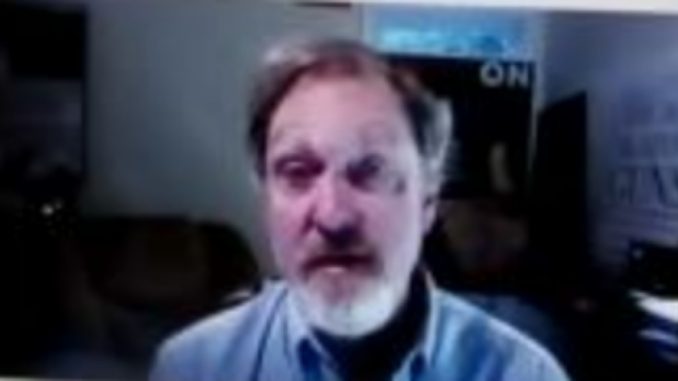
Crime researcher and gun rights advocate Dr. John Lott argued Sunday that mass shootings like the ones that took place in El Paso, Texas and Dayton, Ohio over the weekend would be less likely to occur if more citizens were armed.
Lott, the founder of the Crime Prevention Research Center and author of “More Guns, Less Crime,” accused the media of ignoring the fact that most mass shootings happen in areas where guns are prohibited.
“And the thing that is frustrating to me, is that the media refuses to go and call these places gun-free zones,” Lott toldABC affiliate WJLA in an interview released on Sunday.
To back up his claim, Lott pointed to statements from the very people who perpetrated mass shootings.
“There is a reason why these killers—when you go and read the diaries or look at other statements or people who have left statements—try to pick out those venues where they know victims can defend themselves,” Lott said. “These people may be crazy but they are not stupid. They know if they go to a place where people can’t defend themselves, they are going to be able to kill more people then they could have otherwise.”
In a 2015 article for National Review, Lott cited statements by mass murderers James Holmes and Elliot Rodger as two instances where shooters have reportedly ruled out potential targets because they feared being stopped by armed individuals.
According to Lott’s research, about 95 percent of mass shootings in the last 70 years have occurred in gun-free zones where people who might otherwise be licensed to carry a firearm are prohibited from doing so.
“I think the irony is, that we pass gun control regulation and they make it so that victims rather than killers obey the laws,” Lott said. “Rather than making people safer, they make things riskier.”
Addressing concerns that people carrying guns could potentially cause more harm than good, Lott said that such claims are unsupported by his data.
“There is not one single case where a permit holder has shot a bystander and not one single case where the police when they arrived accidentally shot the permit holder,” Lott argued.
Lott pointed to cases of defensive use of guns, which he says are under-reported by media outlets, as evidence that allowing concealed carry can save lives.
“My guess is that if you gave coverage to those types of things, those types of attacks and how they fail, it might cause some other attackers to think twice before they engaged in their attacks,” Lott said.
The pushback against John Lott
Since releasing “More Guns, Less Crime” in 1998, Lott has been an influential but polarizing figure in the gun debate.
Some experts have taken issue with Lott’s definition of “gun-free zone.” In his 2016 book “Rampage Nation,” University of Massachusetts-Boston professor Louis Klarevas argues that Lott’s conception of “gun-free zones” is problematic.
Klarevas takes on Lott’s characterization of Fort Hood and Washington Navy Yard, sites of mass shootings where armed security were present, as “gun-free zones.”
“There’s an obvious logical problem with such a conceptualization: How can a place be a gun-free zone if guns are present?” Klarevas writes. “The implication is that rampage shooters are only deterred by armed civilians, not by armed guards and cops. But that’s an absurd suggestion.”
(snip)
Other critics say Lott’s data analysis leaves much to be desired.
Researchers Dan Black and Daniel reviewed Lott’s data for their 1998 inquiry into the effects of concealed carry laws on violent crime rates.
“Our reanalysis of Lott and [co-author David] Mustard’s data provides no basis for drawing confident conclusions about the impact of right-to-carry laws on violent crime,” the authors declared in a paper published in the Journal of Legal Studies.
Similarly, Ian Ayres of Yale Law School and John J. Donohue III of Stanford Law School, took issue with some of Lott’s claims in a 2003 study examining the efficacy of concealed carry laws.
While conceding that Lott, and fellow researcher David Mustard, have made “an important scholarly contribution in establishing that” shall-issue laws “have not led to the massive bloodbath of death and injury that some of their opponents feared,” ultimately Ayres and Donohue found that the “statistical evidence that these laws have reduced crime is limited, sporadic, and extraordinarily fragile.”
*see full story by the Pluralist